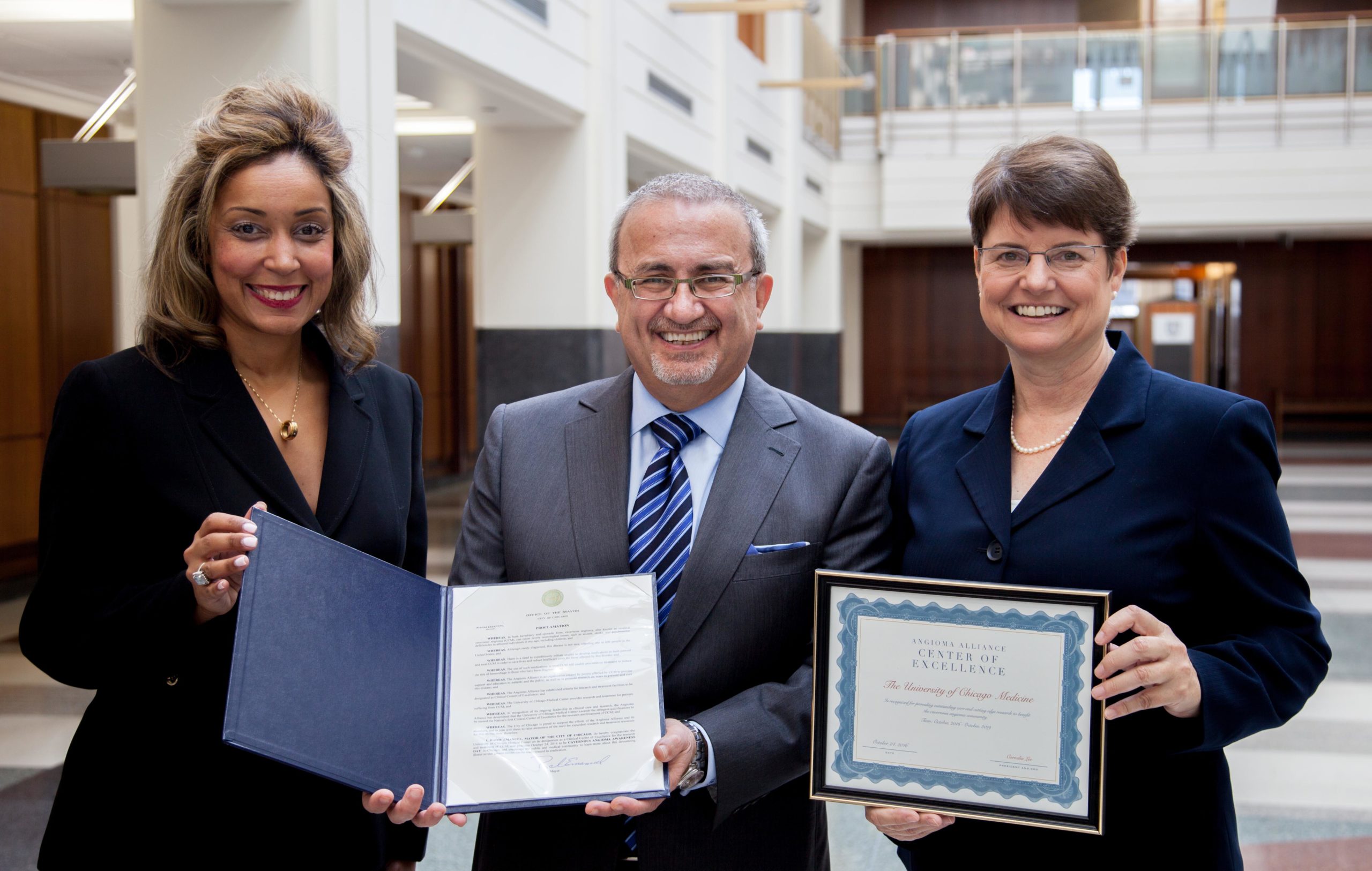
Recognized as Center of Excellence on 10/26/2016, Public Announcement
University of Chicago Medicine CCM Center of Excellence webpage
Phone: (773) 834-5210
Address: Duchossois Center for Advanced Medicine, 5758 South Maryland Avenue, Chicago, IL 60637
Number of CCM outpatient appointments annually: ~120
Number of CCM inpatient days annually: ~75
Number of CCM research publications 2011-2020: 46
Faculty
Medical Director and Cerebrovascular Neurosurgeon: Issam Awad, MD, MSc, FACS
Adult Neurology: James Brorson, MD, Shyam Prabhakaran, MD, MS
Epileptologist: James Tao, MD
Pediatric Neurologist: Chalongchai Phitsanuwong, MD
Geneticist: Darrel Waggoner, MD
Neuroradiology: Michael Hurley, MD
Nurse Coordinator/Contact Information for Clinical Coordinator: Maria Ade, RN and Team
Clinical Research Manager: Agnieszka Stadnik, MS
Clinical Research Nurse/CCM Clinical Trial Information: Justine Lee, BSN, RN
Second Opinion Information
The University of Chicago CCM program offers in person second opinion consultations only. Out of pocket or self-pay costs depend on insurance coverage and can be provided upon request.
Please go to uchicagomedicine.org/ccm for additional information, or call to schedule: Neurovascular Surgery and the CCM Center of Excellence (773-834-5210)
Summary of the University of Chicago Research Program
Issam A. Awad, MD, has led research studies on CCM for nearly three decades. His work helped identify the early natural history and gene loci of CCM, including the discovery of the Common Hispanic CCM1 mutation and more recently the Ashkenazi Jewish CCM2 mutation. He discovered the immune response in CCM lesions, genetic aberrations in lesions themselves, and signaling targets for the potential treatment of the disease.
Awad and his research team are currently funded by the National Institutes of Health to study the biology and clinical behavior of CCM. They are developing biomarkers of CCM disease on imaging, including permeability or “subtle leakage” in lesions and brain, and quantitative susceptibility mapping of iron levels in lesions. Their team is also helping to develop blood tests that may predict CCM lesion activity. These studies are aimed at the prediction of lesion behavior and the innovation of drugs that halt lesion development. Finally, they are leading the first clinical trial for cavernous malformation symptomatic hemorrhage. The atorvastatin EPOC trial began recruiting late 2018 and finished recruitment July 2022. The last patient will be followed until July 2024.
Many patients participate in CCM research by allowing the team to analyze the data collected during their enhanced MRI scans. This information is used to discover more about the origin and behavior of each CCM lesion and contributes to the ongoing development of new CCM management strategies. Patients may give blood samples for biomarker research or donate samples of a lesion resected at their surgery for research studies. All research involving human subjects is totally voluntary and does not otherwise influence the highest level of clinical care delivered to each patient regardless of participation in research. Research ensures the utmost privacy and does not incur patients any additional cost beyond their routine clinical care. Each project is approved by the Institutional Review Board at the University of Chicago Medicine.
Updated on 09/29/2023


